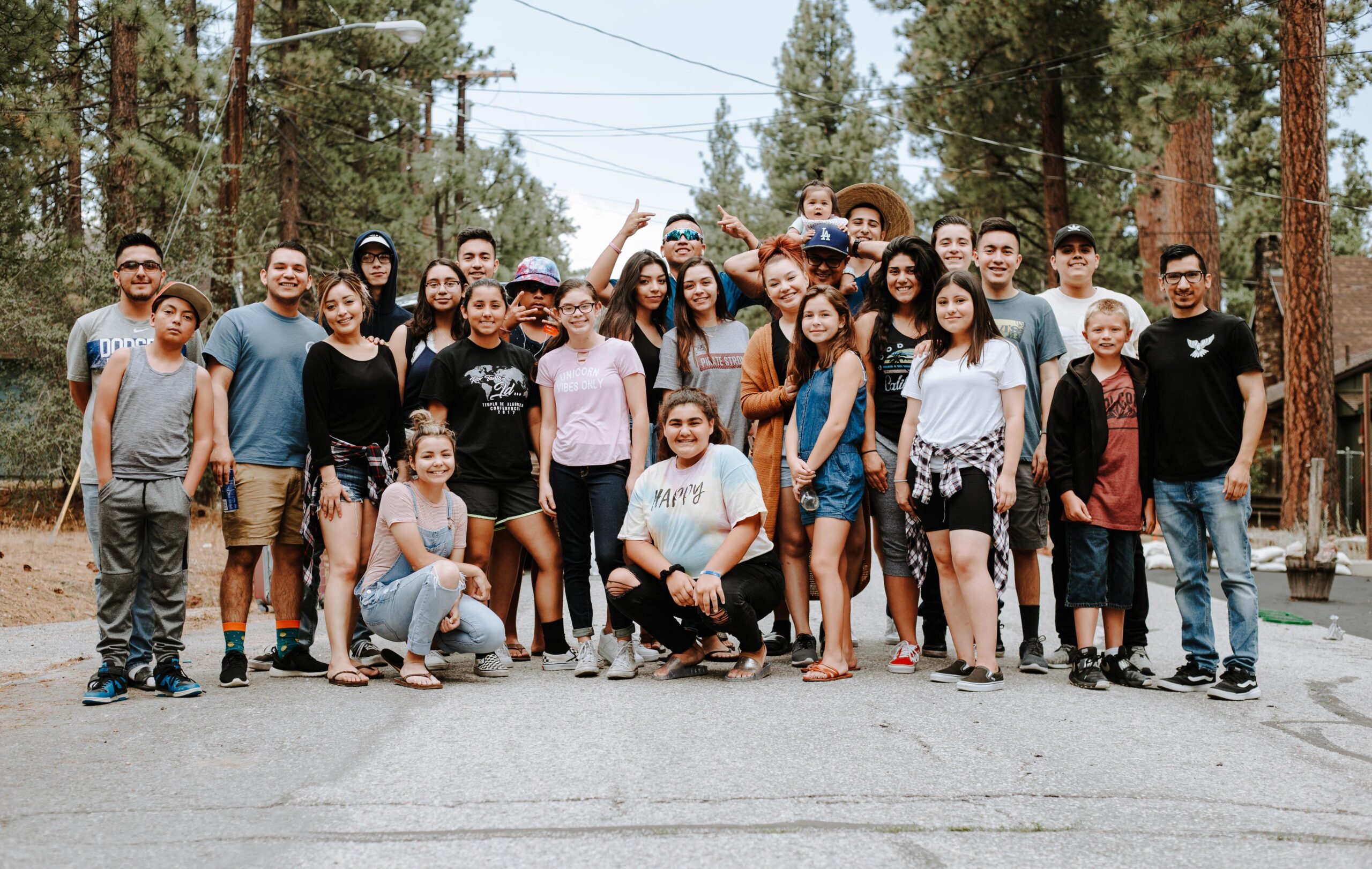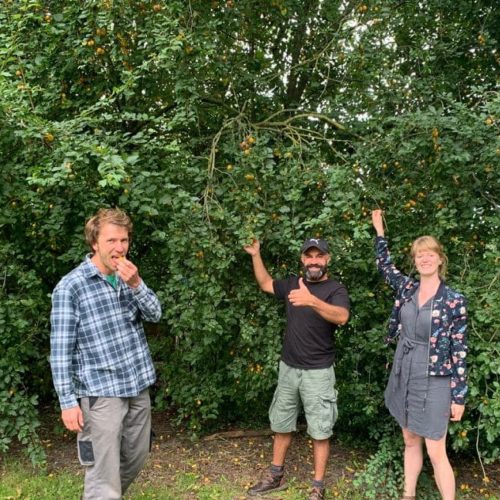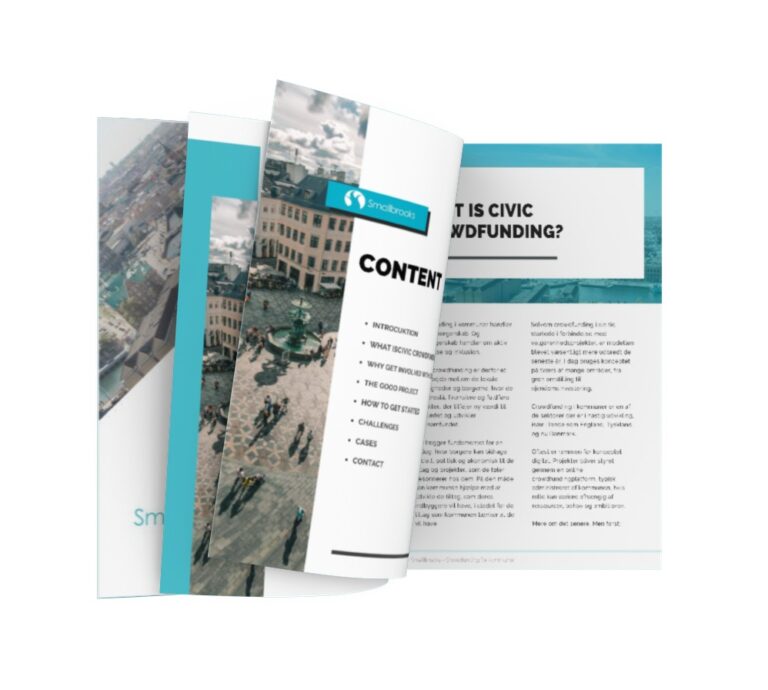Smallbrooks
Civic crowdfunding: A guide for local authorities
By mathias foged
Introduction
What is crowdfunding?
In a nutshell, it is a method to raise money for a specific project from a large group of individuals.
But it’s a lot more than that.
Crowdfunding has gone from a financial niche concept to a far-reaching phenomenon that encourages community, collaberation and innovation. It makes the development of new ideas econimaccly possible, but also makes the process more demoratic and inclusive.
For local authorities it represents a new opportunity, not just to build bridges between the authorities and their citizens, but also between the citizens themselves.
But what exactly is civic crowdfunding and how do you get started as a local authority?
Civic crowdfunding for beginners
Civic crowdfunding is about civic participation. And civic participation is about agency and inclusion.
Civic crowdfunding is thereby a partnership between local authorities and citizens, where the latter can suggest, finance and complete projects that contributes to the city and develop the local community.
It creates the foundation for a dialog where citizens can contribute socially and economically to the ideas and projects that resonate with them. In that way, local authorities can assist in developing the initiatives their citizens want, instead of the ones that the local authorities think their citizens want.
While crowdfunding started with charity projects, the model has become significantly more widespread in recent years. Today, the concept is utilized across a multitude of areas, from sustainability to real estate investments.
Civic crowdfunding is one of the concepts that is experiencing rapid growth, especially in countries such as England, Germnay and lately Denmark.
Most often, the framework for the concept is digital.
Projects are managed through an online crowdfundingplatform, typically administered by the local authority, whose role can vary depending on ressources, needs and ambitions.
More about that later, but first:

Why get started with civic crowdfunding?
Apart from the financial benefits that comes with crowdfunding, evidence shows that the real value lies in its social benefits.
Participation and inclusion
A central aspect is an increased engagement from citizens.
Local authorities are always looking for new ways of encouraging civic participation. Crowdfunding is a bottom-up initiative that makes it possible for citizens to contribute, but with them as the focal point.
Because civic crowdfunding is more than just financial contributions. It is a way of democratising local development. The ideas come from the citizens and anyone can suggest a project, no matter status of position.
At the same time, people can vote with their money, by supporting projects that they make sense to them.
Lastly, it is not only money that people contribute with, but often knowledge, expertise and time. In this way, it is the citizen that is the driving force and has the largest influence. The local authority is part of the process, but primarily in the role of facilitator.
In this way, it creates a higher level of confidence in the local authority running the platform.
Insight
It’s always a challenge for local authorities to gauge the needs of their citizens.
While the economic aspect is often seen as the central one in crowdfunding, there is a great value in being able to see what people choose to support. Crowdfunding makes it possible for th epublic to express what projects they believe should be completed.
The local authoritites can then observe and assist in the development of each project, and thereby create a dialog which provides insight into what resonates with people.
Community
Evidence shows that civic crowdfunding strenghtens the existing sense of unity, but also lays the foundation for new networks across different organisations and individuals.
Local affiliation and sense of ownership has shown to increase in people who gets involved in civic crowdfunding. People can contribute to and be part of a larger community, which often results in a higher degree of satisfaction among the population.
In short; Civic crowdfunding is not only about money.

Sunderland Art Room
Is a local art school for kids in the English town of Sunderland. The project aimed at establishing a free space for play and creativity in the heart of the city. It has a study room, a playroom and a little cafe and holds regular events and workshops.
Great projects
Civic crowdfunding can include a wide range of potential projects.
However, it’s important to be aware of the criteria that a project should live up to in order to be suitable for crowdfunding.
A crowdfunding platform should be set up for success, especially at the start.
This is primarily achieved through great projects and great projects mostly have at least a few characteristics in common.
Not all of the following criteria needs to be present, but they are excellent as a guideline for whether a project will be successful or not.
Realistic
It can be tempting to immediatly try out big and ambitious projects. Even though there is definitly a possibility to make these happen, evidence points towards that smaller projects with modest goals are better suited for civic crowdfunding. Especially on a new platform.
First of all it can be difficult to actually reach the goal of a big project, but on top of that, it can be demotivating for the backers if they fell that the goal is unattainable or that their contribution doesn’t make a difference.
in the Netherlands is the first major infrastrcuture project to be financed through crowdfunding.
The idea was to build a 400 m long wooden bridge to connect three areas of the city that were seperated by train tracks.
Everyone who supported the project had their name ingraved on a plank.
Each plank came at the cost of 18 euro. Within a few weeks, more than 17,000 planks had been sold.

Specific
It’s important that the project has specific goals and boundaries. “We want to make the park nicer” is a difficult goal to satisfy. However “we are going to build a new playground with two swings and a slide” is easy to understand.
It sets clear goals for the project owner, which makes the financing target easier to determine in a precise manner. Furthermore, it makes it clear to people what exactly they are supporting.
So make sure the project owner clearly states how much money they need and what they will go towards.
Local
People tend to involve themselves more in their close surroundings. So getting projects that have a local angle is a great idea. A community theater in the town square, a little cottage in the nearby forest or a book club at the local library.
The more it’s a part of peoples everyday life, the better.
Representative
Crowdfunding works best when it’s democratic. So consider whether a potential project represents a wide enough section of the population and at the same time reflects the local values.
If the project only benefits a small, select group of people within a niche topic, then maybe consider whether the project is right for your platform.
Of course, this is a pretty subjective evaluation, so it’s up to the local authorities to determine what best reflects their values.
Uncontroversial
As crowdfunding tends to involve a high number of people with diverse opinions and lifestyles, it can be a smart move to stay away from controversial projects.
A local ice skating rink or a concert on the main square is hard to get angry about. But raising funds for a political party or a demonstration about a hot topic can sometimes be better off being referred to seek other avenues.
Network
It’s an advantage if the project owner already has a network ready to support the project.
Social proof is powerful and can greatly help the project reach its goals. If other people who don’t know the project owner can see that there is a significant amount of existing support, it will be easier to commit to it.
How to get started as a local authority
Interested?
Smallbrooks can help you get your own civic crowdfunding platform. If you are interested, feel free to reach out to us.
Many local governments have started to use civic crowdfunding as a catalyst for new initiatives among the citizens, as well as getting involved themselves.
However, the question is how and where to get started.
The role of the local authority
As it is the local authority that is in charge of the initiative, it’s important to first clairfy what role it wants to assume.
There are several ways to approach this, but the central question is to what degree you want to get involved.
It’s about finding a balance between on the one hand evaluating and guiding projects, but on the other not become too restrictive and end up as a limiting entity.
There are three typical roles to assume, with varying levels of control.
While they are not set in stone, this can function as a point of departure when starting out.
– Sponsor
The role with the least amount of involvement from the local authority. In this case, the local authority only acts a co-sponsor of projects.
The crowdfunding platform with the projects are run by someone else. This requires the least amount of commitment, but also doesn’t take advantage of the benefits of having a crowdfunding platform.
– Partner
Here, the local authority assumes a bigger role. As partners with a third-party platform, the local authority typically gets a category for themselves on a platform, where citizens can post projects that are in accordance with specific criteria for local civic crowdfunding.
As a partner, the local authority can then find and guide projects, as well as act a filter so only the right projects gets published.
While the platform is not owned or run by the local authorities, this still creates a greater sense of ownership and community around the concept of civic crowdfunding. In this case, many local authorities still choose to also act as co-sponsor, and support projects that reach their goals.
Did you know?
That civic crowdfunding projects otend to have a much higher rate of success than normal crowdfunding projects?
In many cases, up to 90% of projects where local authorities are involved reach their goals.
That is significantly higher than the average of 22%.

– Manager
In this case, the local authority is the co-creator and manager of the civic crowdfunding platform.
This is typically done by either making use of a white-label solution or getting a custom built platform. Both are done with a third-party provider.
A platform is set up, which the local authority can then run by themselves with guidance from the software partner.
In this case, the local authority takes an active role and acts a facilitator of the whole initiative. Firstly, by functioning as a gatekeeper, by finding, evaluating and guiding project owners.
While the technical aspects of the solution is administrated by the software provider, it’s the brand and the identity of the local authority that is present on the platform, and the whole concept is owned and run by them.
It also allows for establishing a true civic crowdfunding ecosystem with the local authority as an integral part.
While this role demands the greatest amount of commitment for the local authority, it is also where the greatest benefits lie, as it allows for full control of the direction the platform takes.
It is also this model that has seen the highest growth in recent years, with several areas, for example the UK and Germany, adopting the approach.
It often brings the greatest returns in the local community and allows for cooperation and development between citizens, organisations and the local authorities.
Common challenges
Civic crowdfunding represents a new form of citizen participation and has been adopted by many local governments in different countries.
But before starting a local crowdfunding iniative, it’s important to be aware of the risks and obstacles that can present themselves. The more you are aware of possible pitfalls, the easier it is to avoid them.
Responsibility for the projects
Even though it is the project owners who are in charge of the projects, in the end, it might still be the local authority who risks being held accountable. Projects that do not deliver in terms of quality or deadline can reflect badly on the platform owner. Justified or not. Therefore, it’s important to have a strong system in place to find and evaluate projects.
Is the goal realistic and is the money enough to complete the project? Is the project owner reliable? Have the right permits been acquired?
Most project owners are not experts in civic crowdfunding. That’s why it’s essential to make sure they get a proper introduction in the main guidelines for a good project and to evaluate if their project meets the requirements you have set. The more clear the criteria are, the easier you will be making it for the citizens that brings the projects.
Projects with long-term commitments
Most crowdfunding projects don’t need any help after the project has reached its goal. However, there can be specific cases where its necessary to be aware of commitments that extend past the deadline, either financially or otherwise.
An event is finished by the deadline, but if the project consists of for example a volunteer cafe, there has to be a proper plan in place for who should run it. If it’s an ice skating rink, who will be in charge of maintaining it? No matter what, it’s critical that a clear agreement with the project owner is in place.
Crowdfunding as a replacement for public responsibility
It has to be crystal clear – both for the local authority and the citizens – that crowdfunding should not exempt the local authority for its normal economic responsibility.
Crowdfunding is an addition, not a replacement, and should be treated as such. Otherwise, it can quickly lead to controversy and criticism.
Administration
A platform doesn’t run itself. Projects need to be gathered, evaluated and guided. Deliveries needs to be assured and questions from project owners and citizens need answers.
When that is said, it doesn’t take an army to run a crowdfunding platform. Most civic crowdfunding platforms – if they have the right processes and knowledge in place – are run by one person, at least to begin with.
With the proper training, one administrator can handle the day-to-day. If then the platform grows, then you can dedicate additional resources.
Cases

Mayor of London
In 2014, London established a crowdfunding platform together with the external partner Spacehive.
The initiative and the platform is managed by the London city council, which is also sponsoring the projects. According to their own internal evaluation, the platform has contributed to a higher democratisation of the development of the local community.
Furthermore, the majority of the involved citizens have experienced a higher degree og local cohesion.
New networks have been established acorss individuals and organisations, who normally would not have been in contact with each other.
Project examples

Well Street Market
The project owners behind Well Street Market set out to create a new kind of street market.
With ecological food, a music stage and art exhibitions, the event has grown to be a popular destination for many citizens.
Migrateful Cookery School
To develop local bonds, the people behind the project, where immigrants could share their cooking skills. The initiative is adding to the integration and local community in London and has seen positive results since it started in 2021.


Streekmotor23
Streekmotor23 is a collaberation between 23 different areas in Nothern Belgium.
Partnering with Koalect, who provided the software, they set out to build a crowdfunding platform spanning several regions.
The idea was to cretae an initiative, which could support local projects with a focus on vulnerable young people, the elderly and people with disabilities or special needs.
The purpose is to activate people and engage them in their local community. The paltform has grown to include more areas, such as mental health, sports and many other things.
The whole project is supported financially by the EU and a long list of other organisations that co-sponsor projects together with the crowd.
The platform is an example of a custom-made solution where instead of using a white-label approach, the paltform has been build from the ground up.
The owners of the paltform accept a wide range of projects from many different project owners, from NGO’s to individuals, not-profits, schools and private companies.
The local authorities does not only run the platform themselves, but also co-sponsor the projects by doubling the investment if a project reaches its goal.
Project examples

Pluk 9230
The project gathers citizens in the region for ‘picking days’, where groups go out to pick fruit together, which then is used to make products such as juice, chutney or marmalade. The profits of the sale is then donated to charity.
Dog days at the nursing home
As part of a wider initiative to support the local elderly, an animal shelter trains dogs and go visit the nursing home on schedueled days.
The idea turned out to be a hit and has since spread to other regions.


Sunderland crowdfunding
The football-loving city on the English west coast started their own platform in 2020. The primary purpose was to relieve people and companies hit by COVID-19.
However, the concept took off and today the platform is at the center of a myriad of projects. From music festivals, small community gardens, pop-up markets and art exhibitions.
The platform is run mostly by a single employee from the Sunderland city council and is co-financed by several sponsor organisations. These organisations help support projects that reach a certain number of backers themselves.
Project applications are continously processed, but approved projects only get published two times per year.
In this way, the city council have plenty of time to do quality checks and guide the project owners.
In less than three years, Sunderland crowdfunding has completed more than 40 projects and have more than 1800 backers on the platform.
Project examples

WWIN Bus
A local shelter for victims of domestic abuse crowdfunded a minibus in order to allow the residents of the shelter to go on trips around the countryside.
More than a 100 people yhotught that was a great idea and the project quickly reached its goal.
Music studio in an old bunker
The project owners work with local volunteering music producers, to set up a music studio in an old abandoned bunker.
While the project has a focus on providing a creative space for young and upcoming artists, everyone is welcome to use the studio.


At Smallbrooks, we specialise in building crowdfunding platforms that fit your needs.
As your partner, we help you create your own platform and make sure you get started right. We help you with projects, development and marketing.
If you want to learn more about getting your own civic crowdfunding platform, don’t hesitate to reach out.


